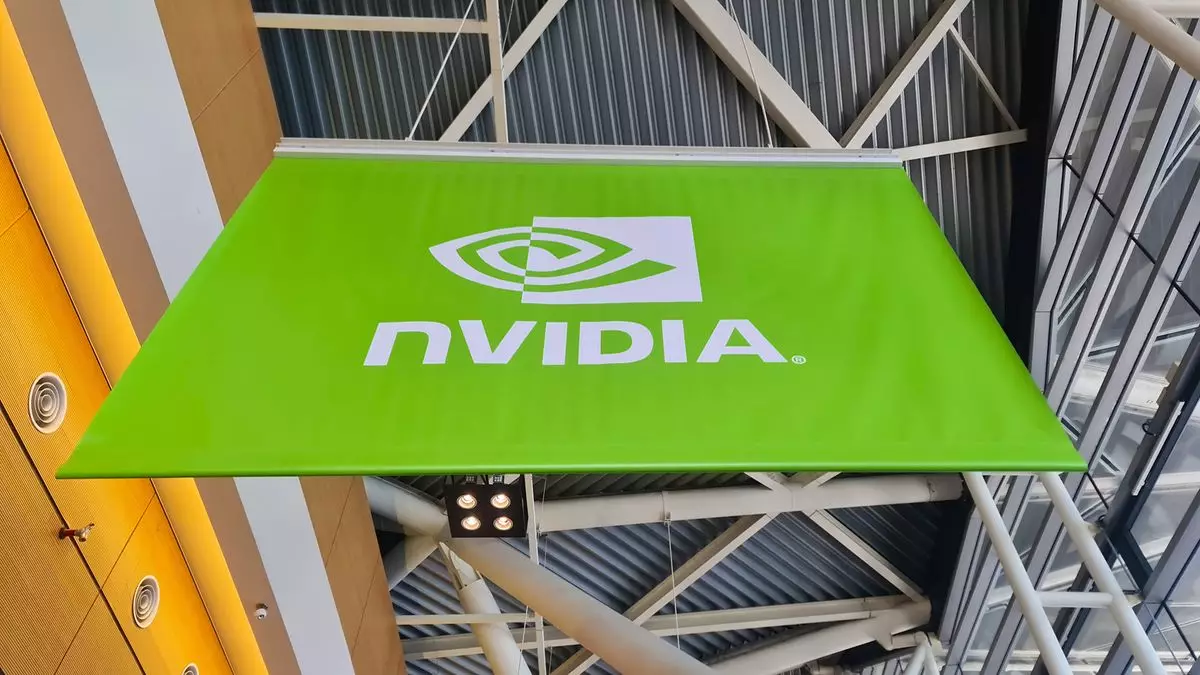In the world of corporate giants, few names resonate as strongly as Nvidia, a titan in the semiconductor and graphics processing unit (GPU) market. While the company has achieved remarkable success, it finds itself embroiled in legal battles that could reshape the landscape of securities litigation. The ongoing class action lawsuit, which dates back to 2018, raises fundamental questions about corporate transparency, investor rights, and the precedents that courts set for future cases.
At the heart of the lawsuit is an allegation that Nvidia misled its investors regarding the extent to which its sales were intertwined with the volatile cryptocurrency market. Specifically, plaintiffs assert that Nvidia downplayed its reliance on crypto sales, potentially violating the 1934 Securities Exchange Act, which mandates accurate and complete disclosures from publicly traded companies. This legal action is significant not just for Nvidia but for the greater investment community, as it could impact how companies communicate their financial dependencies to investors.
In the context of the rapidly evolving technological and financial landscape, the crux of this issue is deeply intertwined with Nvidia’s sales performance surrounding the cryptocurrency boom. Investors seeking to capitalize on the growing crypto trend found Nvidia’s GPUs to be indispensable. The company’s revenue skyrocketed due to this demand; however, when the crypto market cooled, investors purportedly felt blindsided by Nvidia’s failure to highlight the risks associated with its crypto-linked sales.
The journey of this lawsuit has not been straightforward. Originally dismissed in 2021, the case saw a revival courtesy of the 9th Circuit Court of Appeals, highlighting the complexities of securities law and the nuances of corporate accountability. Nvidia is now challenging whether the lawsuit meets the criteria established by the 1995 Private Securities Litigation Reform Act, which aims to deter frivolous lawsuits. Nvidia’s stance hinges on the assertion that the plaintiffs have not presented sufficient evidence to warrant the case’s progression into litigation.
This legal confrontation has escalated to the Supreme Court, where Justices have begun to grapple with the dense legal landscape. A pivotal moment came when Justice Ketanji Brown Jackson questioned the expectation that plaintiffs should possess definitive evidence before their case is even heard. This remark underlines a significant tension within securities litigation: the balance between guarding against baseless claims and offering investors a fair avenue for seeking redress.
The broader implications of this case are profound. As it stands, a ruling in favor of Nvidia could set a precedent limiting the threshold for evidence required for class action lawsuits, making it increasingly challenging for everyday investors to hold large corporations accountable for alleged misconduct. This could cultivate an environment of impunity among major corporations, as they may face fewer obstacles in dismissing lawsuits without thorough scrutiny.
In contrast, if the court rules against Nvidia, it may bolster the position of investors and enhance their ability to seek justice against corporations in complex financial scenarios. As we consider the potential outcomes, a critical question lingers: who exactly is behind this renewed pursuit of justice? Is it the original investors from 2018, or might there be a new group of investors seeking accountability, perhaps those who suffered from the subsequent fallout?
Nvidia: A Company at a Crossroads
Despite the turmoil surrounding the lawsuit, Nvidia’s business performance remains robust, raising eyebrows about the motivations driving this legal action. The company’s remarkable comeback post-crypto crash indicates that many of the original investors likely have substantial gains today. This adds complexity to the narrative; if investors are indeed profiting, the notion that their motivations stem from personal loss becomes tenuous.
As Nvidia continues to navigate these legal challenges, it serves as a reminder that the intersection of business, law, and ethics is fraught with complexity. For both the tech giant and its investors, the outcome of this case will likely resonate well beyond the courtroom, affecting investor sentiment, corporate messaging, and possibly, the future of securities litigation in the United States.

